

Prof Brian Kirby
Professor Brian Kirby is Consultant Dermatologist at St Vincent’s University Hospital, Dublin, Ireland, and Full Clinical Professor at University College Dublin, Ireland.
Professor Kirby’s clinical and research interests include psoriasis and hidradenitis suppurativa. He is co-Chair of the Dublin Hidradenitis Suppurativa Research Group and a Principal Investigator at the Charles Institute of Dermatology at University College Dublin.
Professor Kirby is also a former member of the steering committee of British Association of Dermatologists Biologics and Immunomodulatory Register (BADBIR), a member of the International Psoriasis Council (IPC), a member of the scientific committee of the European Hidradenitis Suppurativa Foundation (EHSF) and Chairperson of the Clinical Advisory Group of Dermatology at the Royal College of Physicians of Ireland.
He has authored or co-authored more than 250 publications, the majority of which are on psoriasis and hidradenitis suppurativa. Additionally, he is Associate Editor of the British Journal of Dermatology and Dermatology.
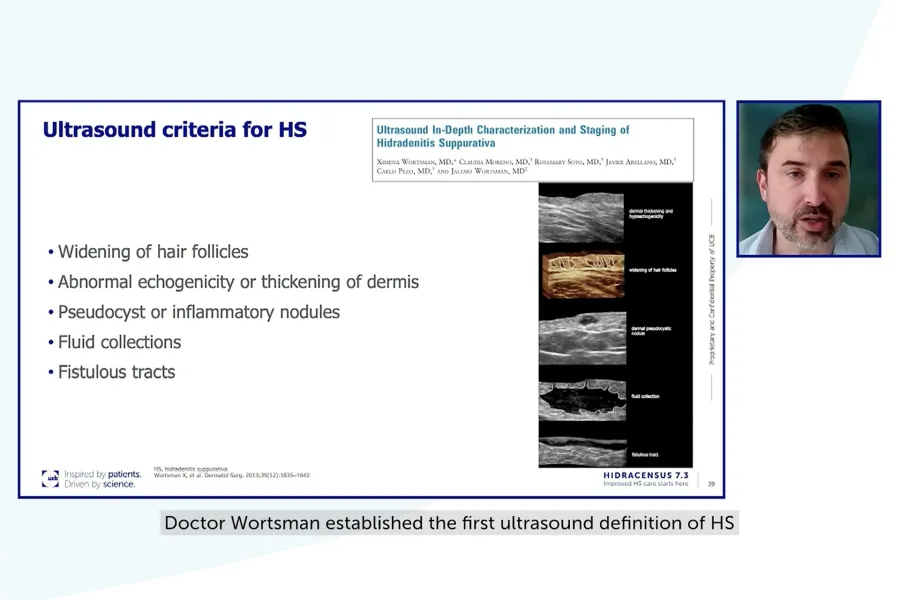
Use of imaging in HS management
Transformative role of ultrasound and magnetic resonance imaging in HS management, and how AI-driven technologies may enhance disease characterisation
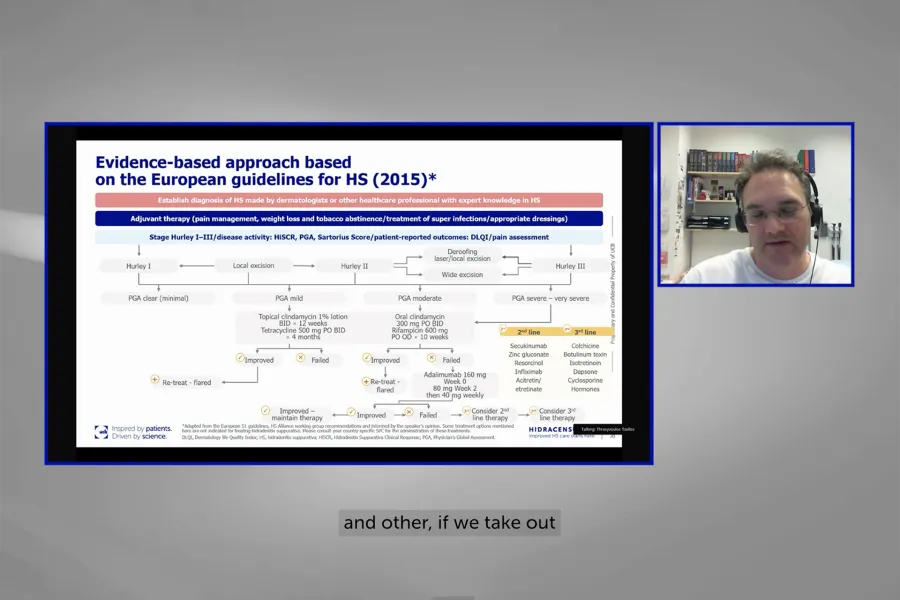
Evidence-based approach to medical management based on the European guidelines for HS
Latest evidence-based strategies for effective HS medical management including antibiotics and biologic therapy
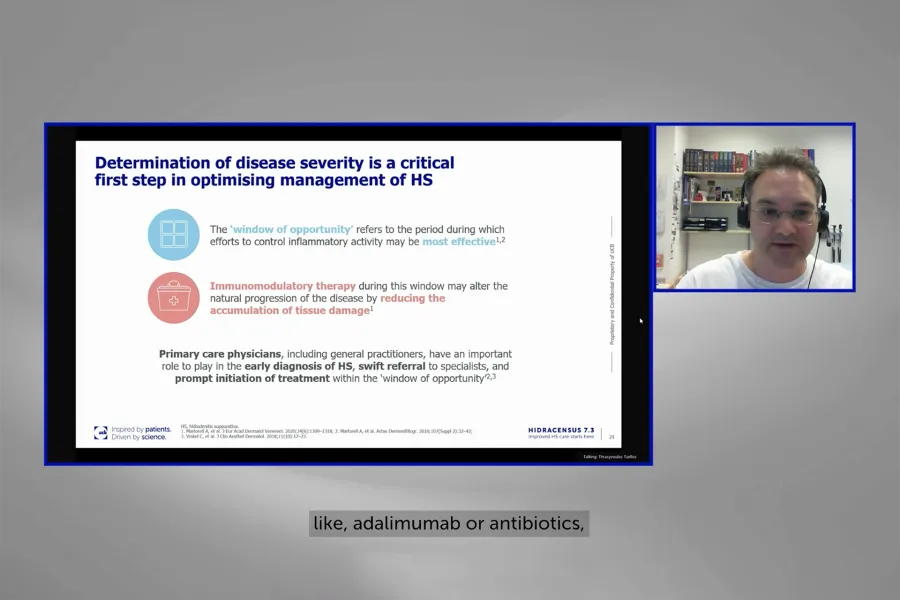
Informed decisions for effective HS management
Different HS phenotypes and disease severity scores: their role in informing management decisions
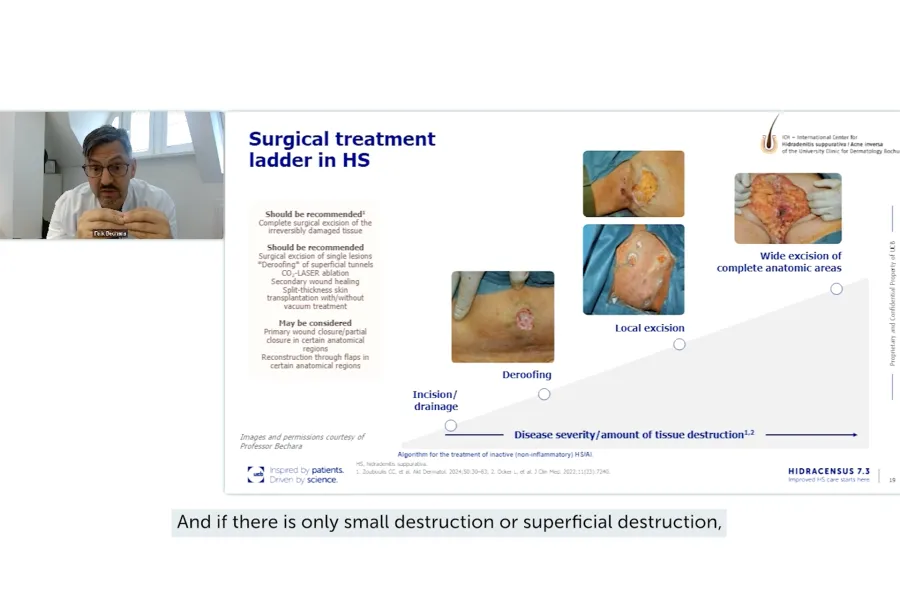
The role of surgery in HS management: Optimising patient results
Surgical management of HS, through minor procedures to more complex interventions
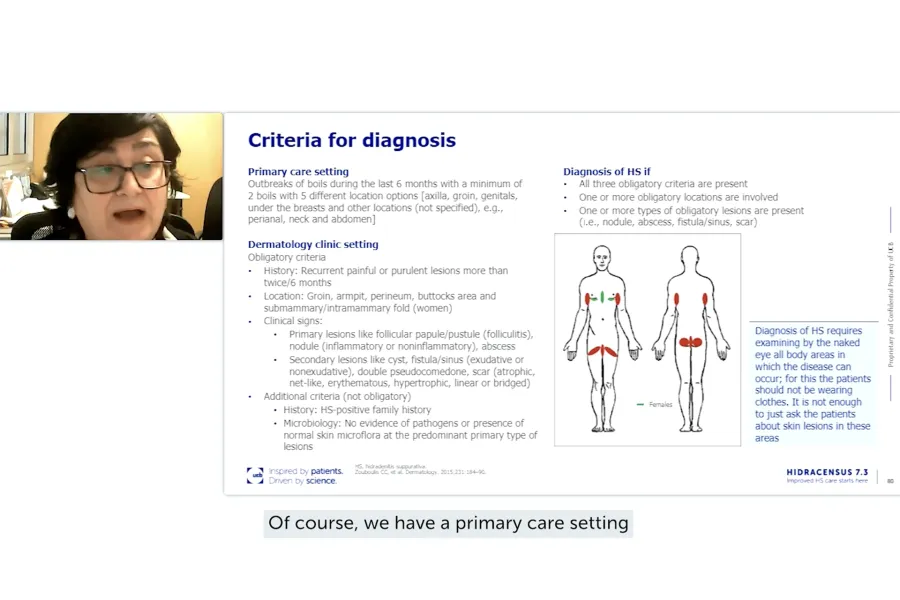
Recognising HS symptoms: Diagnosis and what you need to know
Key criteria for diagnosing HS, common misdiagnoses and how AI can be used to assess disease severity
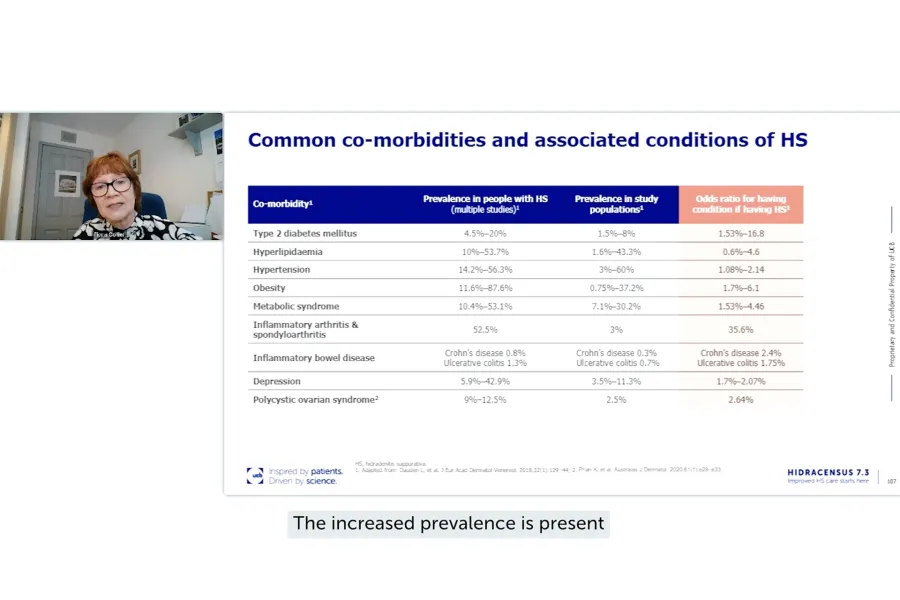
Taking a holistic approach: HS and its comorbidities
HS often presents with comorbidities extending beyond the skin. A holistic approach is essential for effective HS management